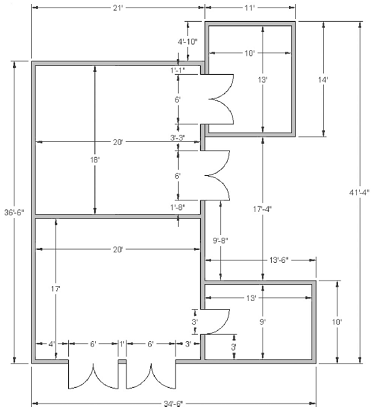As a Senior who is about to graduate with a degree in Civil Engineering and a Building Science Emphasis, I’ve had my fair share of summer internships throughout college. So I wanted to outline a few tips I’ve gained in the last 4 years:
Join Clubs: Joining clubs is a great way to get involved within the department. There are several examples, such as ASCE, the American Society of Civil Engineers, CMAA, the Construction Management Association of America, and EERI, the Earthquake Engineering Research Institute. Most of these clubs host info sessions, dinner and learns, and even create teams that participate in competitions. Not only do these events give you practical experience that will apply to your future career, but also put you in direct contact with recruiters to get your face out there!
This is a wooden model that was constructed for the EERI Seismic Design Competition. It is super exciting, but also super nerve-racking, watching the USC model undergo a simulated seismic event hoping it wont fail!

Try Out Different Fields: Internships are a great way to really apply what you are learning in your classes and see what career path fits best for you. I have had both internships in construction management and commercial land development and realized neither were really the work I wanted to do. But I don’t regret doing them because it led me to what I want to do. A Civil Engineering degree can lead to so many different careers so ultimately don’t be afraid to try an internship out, and especially don’t be concerned if you don’t love it.
Structural Engineers would be more at their desks doing calculations and building modeling, while Construction Engineers would be more on site doing inspections and communicating with contractors. You decide what is the best fit for you!

Develop A Portfolio: This tip varies slightly depending on your path within Civil. However as Civil Engineering is a very visual work, involving modeling, plans, spreadsheets, etc, many of the jobs you’ll work require some basic understanding of softwares. Luckily you’ll have some experience from both classes and club competitions. For internships I wouldn’t say you need a complete portfolio, but an organized demonstration of software work you’ve done is fantastic. It proves to employers that you have experience and also demonstrates a high level of professional that will impress them. Starting a portfolio in college is a great way to be proactive as you will only build on it throughout your career.
In your classes you way develop practice floor plans such as this. Presenting this to potential employers is a great way to demonstrate skills necessary.

Don’t Discount your Writing Courses: Being an Engineer in the modern day is so much more than being a human calculator. It is important to be someone who can speak well and communicate with colleagues, and present yourself in a mature and eloquent way. Therefore I definitely recommend using writing and classes with presentations to your advantage, because learning how to communicate both verbally and in writing will make you stand out to recruiters.
CMAA Team Presentation at their annual “Sparks” Competition to a panel of industry professionals. This presentation seems super intimidating, but it is a great way to practice, especially to such an intense looking panel. My participation in Sparks is what led to obtaining my first internship in construction management!

Always Follow-Up!: A big tip I learned is to always follow-up via email and follow-up consistently. It is important to understand these recruiters or just employees are very busy and sometimes your email simply gets lost in a sea of others. Upon speaking to a recruiter at a career fair, always follow-up so you stand out. But don’t be discouraged if you don’t get a response immediately, it is okay to follow-up again. Just make sure to wait at least a week before so you don’t come off as a nuisance. I once had to follow-up 4 times before a VP noticed me, but because I did I interviewed and received an internship offer!




